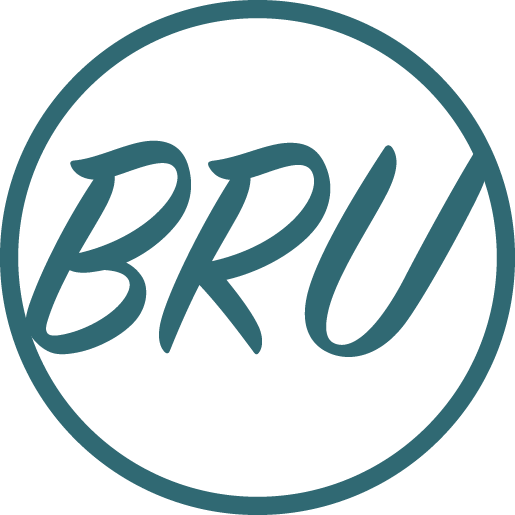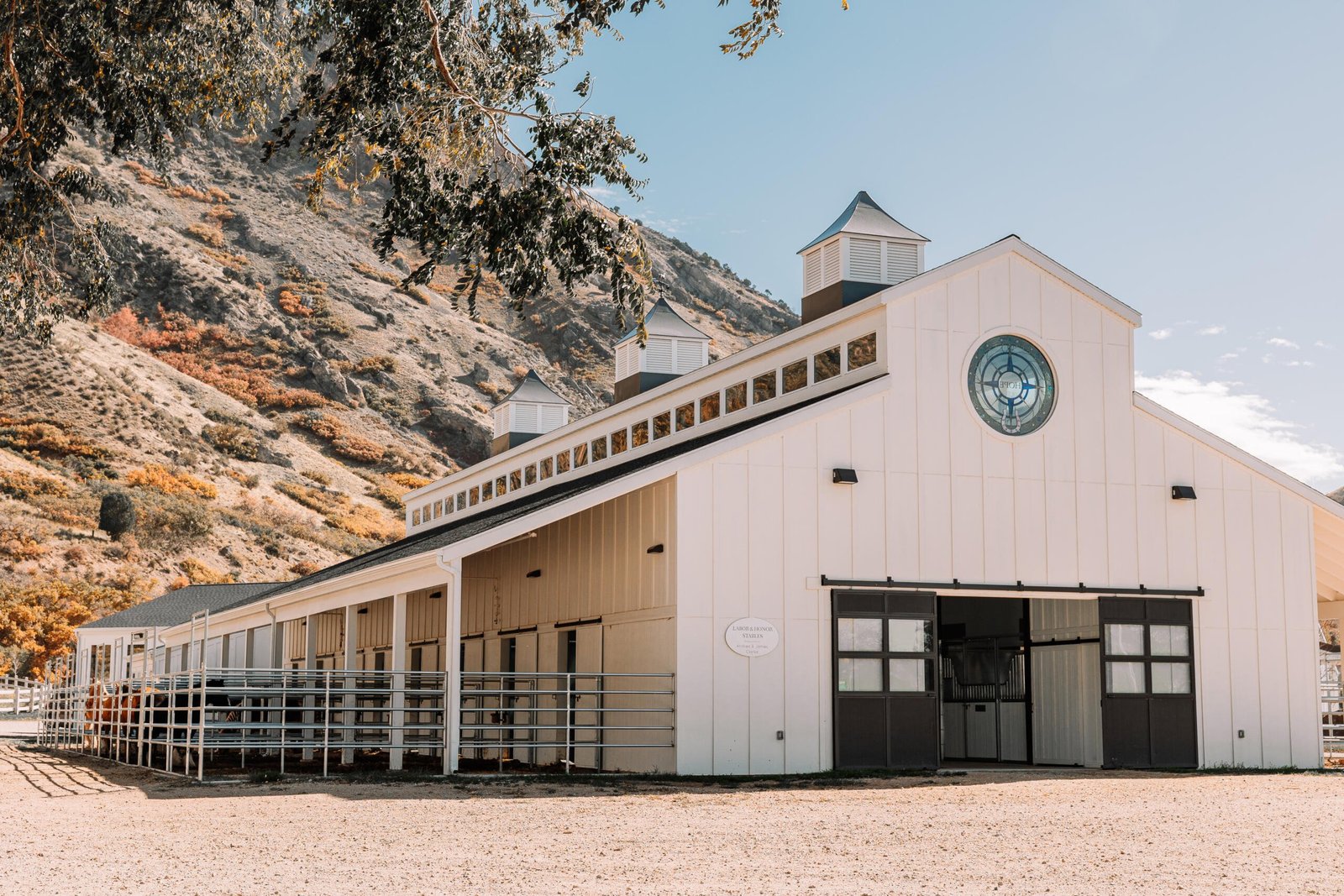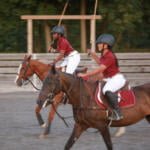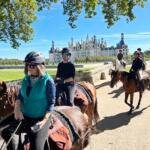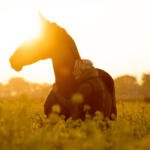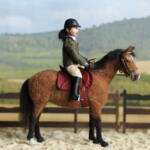Nicole Holgreen is the executive director of Bridle Up Hope, a 501(c)(3) nonprofit equestrian program that inspires hope, confidence, and resilience in girls and women through horses and habits. Once a busy professional with no horse experience, Nicole participated in the Bridle Up Hope program herself after traumatic circumstances left her desperate for healing and relief.
Learn about Nicole’s unexpected journey into the horse world, how she sees equine-assisted learning change lives every day, and Bridle Up Hope’s big goals for expansion.
This interview has been edited for length and clarity.
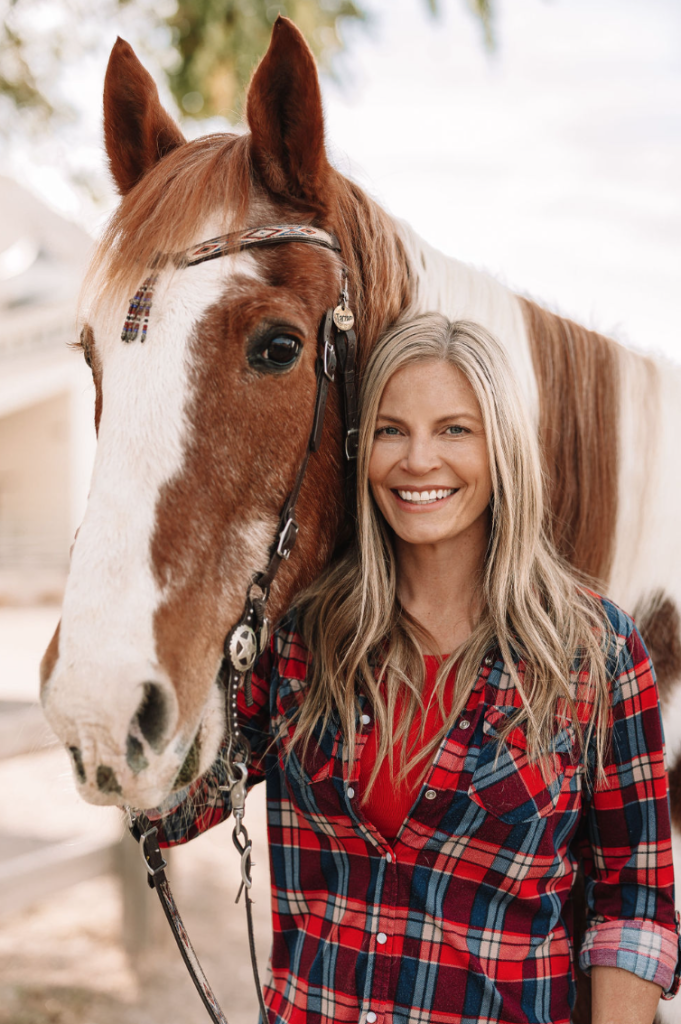
Building a Legacy to Inspire Hope and Healing
BRU: How did Bridle Up Hope begin, and what are its mission and long-term goals?
NH: The Sean and Rebecca Covey family founded Bridle Up Hope in memory of their daughter Rachel, who passed away in 2012. Rachel struggled with depression and anxiety, and horses had huge healing benefits for her. She loved to share that with others.
What began as a neighborhood riding program for young girls expanded rapidly. Today, we have 13 locations worldwide, including our Alpine Headquarters, where we teach 100 lessons weekly. We add new locations annually, and our vision is to establish 1000+ locations across all 50 states and over 100 countries.
Bridle Up Hope’s mission is to inspire hope, confidence, and resilience in girls and women through horses and habits. Sean Covey is the author of The 7 Habits of Highly Effective Teens, and Sean’s father, Stephen R. Covey, wrote The 7 Habits of Highly Effective People. So, we’ve incorporated those habits with horses, and it’s been amazing to watch the program expand and impact so many people.
Finding A New Beginning After a Difficult Divorce
BRU: How did you get involved with the program? Did you have previous horse experience?
NH: No, I didn’t. Ten years ago, I found myself going through an unexpected and difficult divorce. I had two teenage kids and a demanding job, and I felt like I’d been brought to my knees. Then, one of my friends suggested that I come to ride here. I had no idea what I was getting involved in.
Unlike many girls who come, I wasn’t the little girl who always wanted a horse. I thought horses were intimidating and scary, and I was not used to manure! (laughs) I worked in the corporate world in mortgages. I wore heels and skirts to work every day, and now it’s boots and jeans. I never expected to find healing through horses.
My instructor was Cindy, who still works with us. She’s incredible! On my first day, she had me do groundwork with the horse in a round pen and taught me about leadership.
She said, “A horse’s ears point where he’s looking,” and asked, “Where are his ears pointing?” They were pointed at her, and she was sitting outside the round pen. Then she asked, “Why do you think his ears are on me when you’re the one giving him direction?”
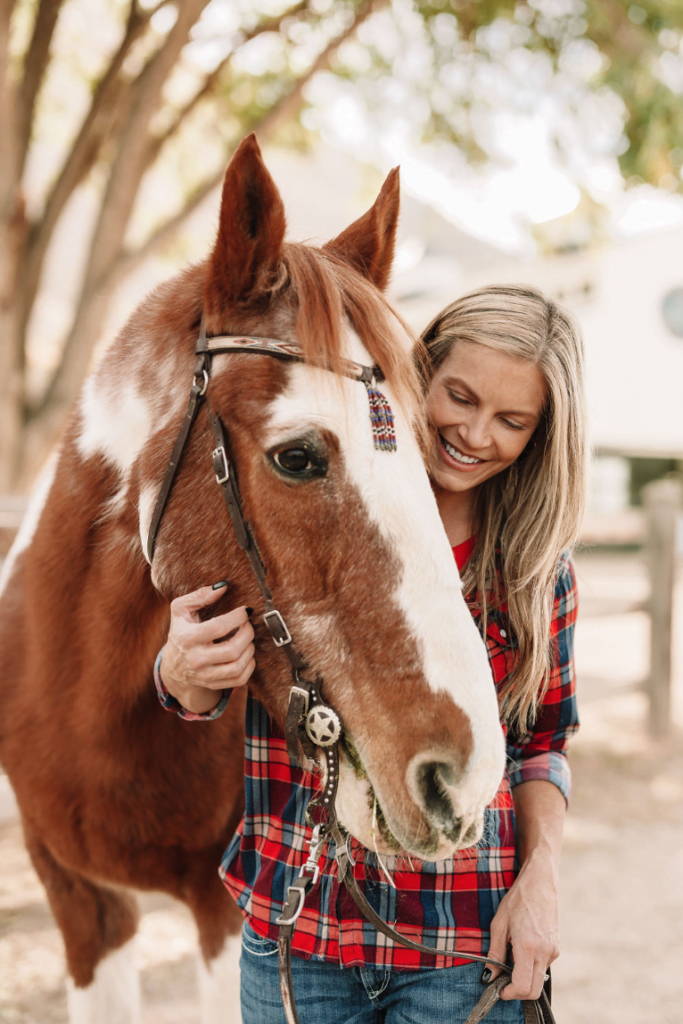
I wasn’t sure—I figured he just didn’t know me, but she told me, “Stand taller.” As soon as I straightened my posture, his ears turned toward me, and by the end of our session, the horse had joined up with me. It felt incredibly empowering.
Then Cindy asked, “How are you being the leader in your own life?” At that time, I had built internal walls ten feet high, and my walls came completely down during that session. I was so focused, and I was able to reflect and be vulnerable in a way that I needed.
The equestrian training and the seven habits empowered me to become a better person. I’d never imagined that horses could have such a huge role in my life. Seeing what I’m doing now would have blown my mind ten years ago.
Creating Individualized Equine-Assisted Learning Experiences for Girls and Women
BRU: How do the programs at Bridle Up Hope work? Do you teach a specific discipline?
NH: We have an equine-assisted learning program for girls over the age of 12 and a separate one for women. Each one lasts for seven weeks. We incorporate the seven habits into classroom time and barn time.
All of our lessons are one-on-one. We’ve had participants who are already accomplished competitive riders and girls who’ve never touched a horse before.
We reach out to everyone including those in vulnerable populations. We’ve worked with organizations to provide transportation to lessons when needed, and we offer services in multiple languages. We also have a partial scholarship program available so girls and women can participate regardless of their financial situation.
We teach English and Western riding and cart driving. We expose our participants to a lot of different things to see what they gravitate toward. The program is designed to meet participants where they’re at.
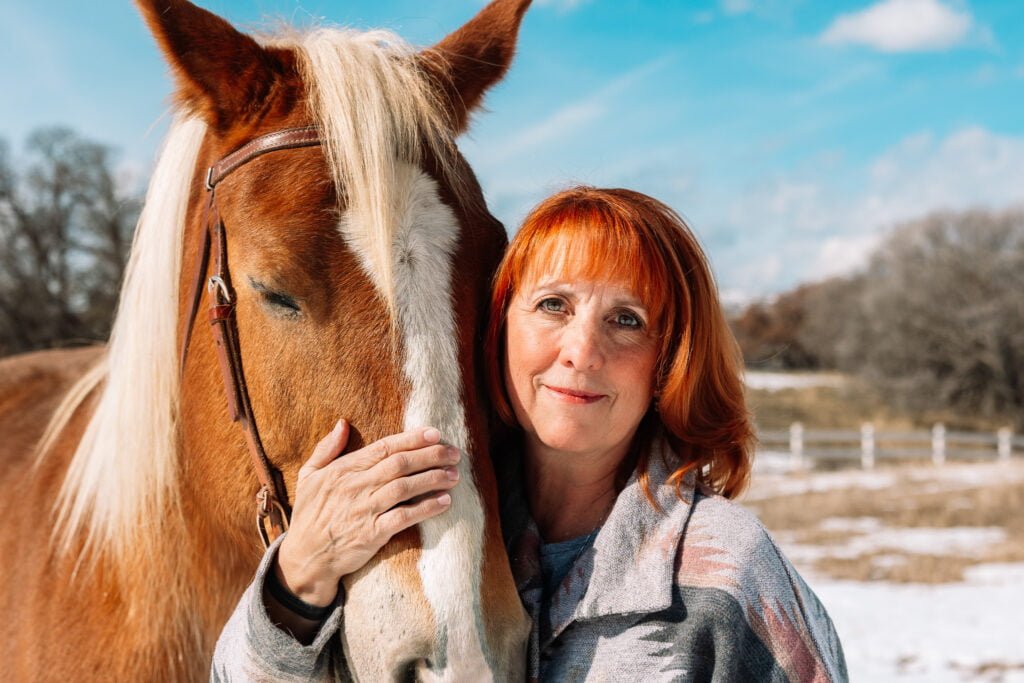
One young woman speaking at graduation had a beautiful way of explaining our program. She said, “I came to Bridle Up Hope for horses, not habits,” but she realized that the program wove the habits into her through interacting with horses. Now, those principles have become part of who she is and how she lives.
When someone graduates, she can earn additional lessons through service hours at the barn and continue learning and participating in the community here.
BRU: Will you tell me more about your horses?
NH: We currently have 19 horses at this location, ranging from a mini named Arwen, who thinks she’s big, up to Jack, a draft cross who’s over 1,700 pounds and thinks he’s small. We have a Gypsy Vanner named Valentino, and up until recently, Rachel Covey’s horse, Tarzan, was a big part of the program. He passed away last year at 26 years old.
It’s an honor to work with such incredible, sweet, intuitive creatures. They allow you to be present and lower your defenses. They can make a bigger difference to a struggling girl in ten seconds of acceptance and quiet interaction than I can in 20 minutes.
Making an Impact All Over the World
BRU: How is Bridle Up Hope expanding its reach?
NH: We partner with wonderful locations that are independently owned and operated. Each location director comes here to certify. We’re always looking for barns that will be a good fit for what we do. We’ve had over two thousand participants here at our Alpine location alone, and we’re excited to spread that impact all over the world.
BRU: What’s it been like starting a program in Ukraine during the war there?
NH: The Covey family is incredible. They dream big. When Rebecca Covey came to me about opening a location in Chernihiv, Ukraine—in the middle of a war—I was planning to say “no” until I got on the phone with our potential directors there. They said, “What we need right now is hope,” and it was just the right fit.
When the war broke out, it was very close to our Ukraine location. Now, the center of the conflict is further southeast, but even printing our program materials there is difficult. Twice, we’ve found a printing company, but when we’re ready for the next round, they’re no longer there because of a missile.
After our most recent phone call, our Ukraine director, Andre, said, “If you hear the missiles, it’s a good thing because it means you’re here to hear them.” It’s such a terrible reality, and it makes me grateful for the privileges and safety we have here.
Our program in Ukraine is run by incredible people. We have different cultures, belief systems, and challenges, but at the end of the day, horses have the same healing impact there that they’ve had in our other locations.
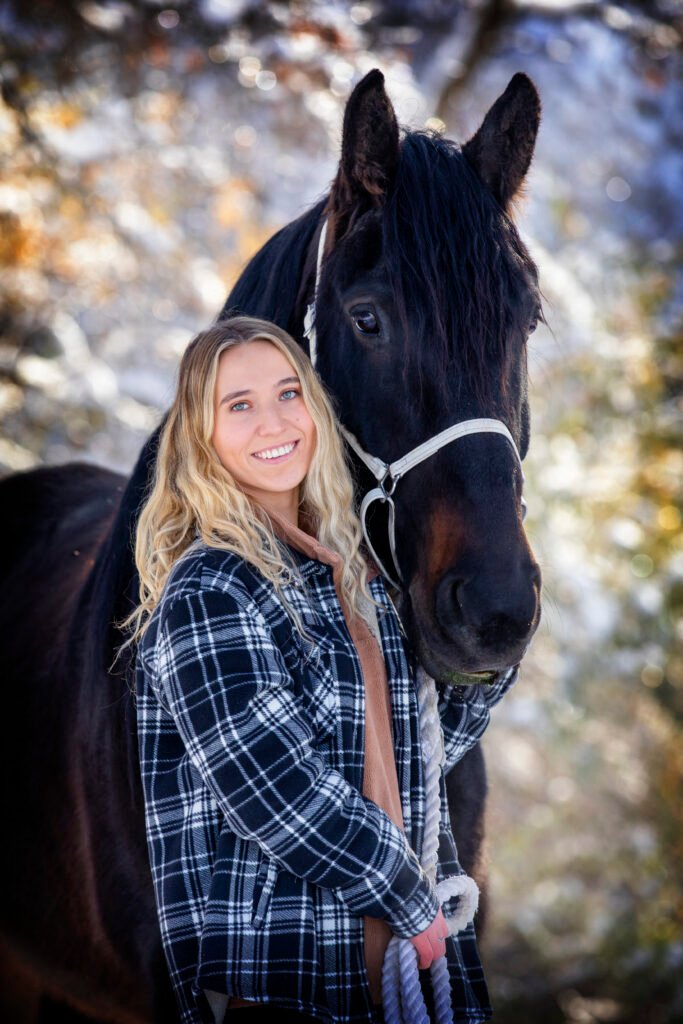
Supporting Future Participants
BRU: What can people do to support Bridle Up Hope?
NH: You can donate toward our scholarship program on our website or purchase items from our online store. Some people have donated hay, and we’ve had individuals do service projects or donate labor. Everyone does what they can. If you know someone who might be interested in starting a new location or helping out, please let them know about us!
BRU: Who do you think can benefit most from a program like this and horses in general?
NH: I think horses can help anyone. When the Coveys started the program in their neighborhood, someone from almost every household reached out to express needs that it could address almost overnight.
We’ve had participants who’ve gone through things as traumatic as sex trafficking, women experiencing postpartum depression who can’t even tell their spouses how they’re feeling, and girls who think that they don’t have friends. It’s beautiful to watch this program create a healing space for so many in such diverse circumstances.
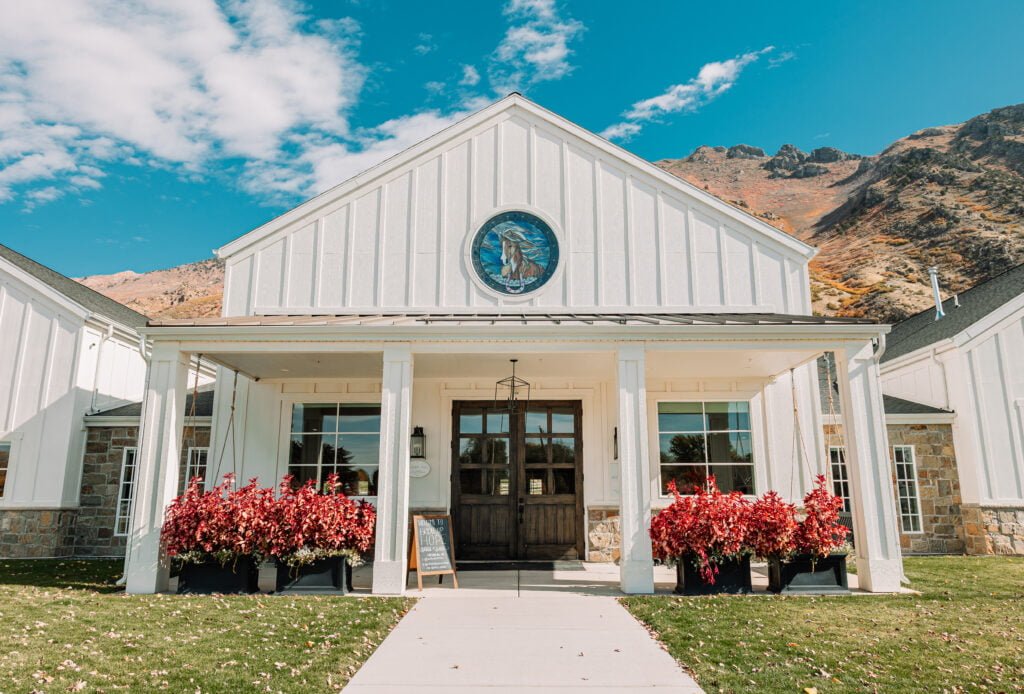
Everyone has something going on. We often think we’re alone, but we’re not. It’s amazing to see healing and hope change so many individuals’ lives, and the horses make it possible.
We’re working to help girls through horses and habits, but this program meets you where you’re at. So, if you’re going through something traumatic that’s circumstantial—like I was—or you’re going into junior high and figuring out where you belong in the world, we’re trying to be a resource for whoever needs us.
You can learn more about Bridle Up Hope online or follow their journey on Facebook, Instagram, LinkedIn, or YouTube.
If horses have made a difference in your life, please consider sharing your story with us.
